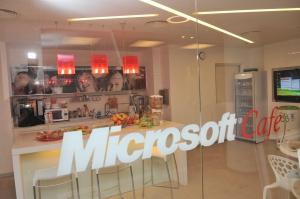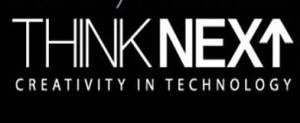Today, Microsoft is launching the first startup accelerator* in the company’s history in an effort to encourage more entrepreneurs to build their cloud-based applications using Windows Azure. The program will take place at the Microsoft Israel Research and Development Center, and is a part of the Israel R&D Center’s outreach program Think Next as well as the Microsoft BizSpark program for startups.
Like most accelerators, Microsoft will provide the typical accouterments, including free office space, coaching, mentorship, legal assistance and more, but in this case, it’s specifically after companies building cloud-based startups. The companies will be provided with free access to Windows Azure, but will not receive seed funding.
According to Zack Weisfeld, Sr. Director of Strategy and Business Development at Microsoft’s Israel Development Center, the decision to launch the company’s first accelerator in Israel had to do with the center’s strategic location for Microsoft, and is part of its ongoing efforts to bring startup culture back to the company.
Israel has a very active startup community, Weisfeld explains. “We have 4,900 startups in Israel today, and the third largest V.C. spending in the world after Silicon Valley and New England,” he says. He also notes that out of the startups participating in Microsoft’s BizSpark One, a sort of “best of breed” selection from the larger BizSpark program, 25% of the companies are located in Israel.
“Because we have such an innovation-driven and startup-driven R&D center, we basically came with a proposal to basically change the way Microsoft deals with entrepreneurs,” Weisfeld says of the program’s beginnings. “Part of that proposal was to start, for the first time in the world for Microsoft, our own startup accelerator.”
The new accelerator aims to tap into the region’s activity, by encouraging startups to launch using Microsoft software.
The Windows Azure Accelerator, as it’s called, will be the first of many themed accelerators Microsoft plans to launch in the same space. The program will also serve as a blueprint for future accelerators Microsoft plans to launch globally, Weisfeld says. And those global programs will arrive sooner than later, it seems.
“I don’t think we’ll wait a year,” Weisfeld says, “we’re going to learn a lot through the first class…we’ll be ready to move as soon as possible to other places.”
 During the four-month, biannual program, entrepreneurs will have access to 850 square meters of newly renovated, shared workspace in the center, which also includes meeting rooms, a usability lab, and a place to record their demo videos. Over 30 mentors from the industry (names TBA) have been lined up to provide leadership, coaching and support. These include startup CEOs, investors, marketing experts and more.
During the four-month, biannual program, entrepreneurs will have access to 850 square meters of newly renovated, shared workspace in the center, which also includes meeting rooms, a usability lab, and a place to record their demo videos. Over 30 mentors from the industry (names TBA) have been lined up to provide leadership, coaching and support. These include startup CEOs, investors, marketing experts and more.
The startups will also receive all the software currently available through Microsoft BizSpark, including, of course, access to Windows Azure. Companies will receive two years (up to $60,000) of Windows Azure, Weisfeld tells us. This is the same offering available through the BizSpark Plus program, which is now offered to TechStars and all members of its Global Accelerator Network. This new program, too, will function as a member of that network, we’re told.
Startups in the program may choose to use open source software, Weisfeld says, but Microsoft “would like” them to use Azure. (Read: should use Azure).
Although the new program is being positioned as an accelerator, unlike many of today’s incubators, there isn’t seed funding involved, nor will Microsoft take an equity stake in the participating companies. However, there will be something else of value offered: access to Microsoft’s partners who may serve as potential customers.
“We know it’s so critical, even in early stages, for startups to have access to people who may use whatever they produce or can start working as beta customers.” Weisfeld says. “We’re going to work both locally and internationally [on that],” he adds.
Microsoft will reach out both to its own customers with whom it already has relationships with, he says, but will also be doing grassroots-level work when necessary.
 The program will culminate with two demo days, one in Israel and a second in the U.S. The first class, which will include 10 companies, will be announced April 22nd at Think Next 2012, which is sort of like a TechCrunch Disrupt-style event for Israel.
The program will culminate with two demo days, one in Israel and a second in the U.S. The first class, which will include 10 companies, will be announced April 22nd at Think Next 2012, which is sort of like a TechCrunch Disrupt-style event for Israel.
As for what’s in it for Microsoft? Besides the obvious (Azure adoption), it’s about an attempt to reinvigorate Microsoft culture.
“We believe that for the Israel R&D center, it’s going to make the center much better. We’re going to have fast-moving, agile startups that want to change the world working closely with our engineers,” explains Weisfeld. “It’s going to make us much better by working with them.”
Interested startup founders can apply to the program here: accelerato.rs/azure/apply
* UPDATE: To be clear, it is Microsoft itself, and those involved with The Windows Azure accelerator, who are positioning the program as the “first-ever” accelerator run by the company. Microsoft, however, has involvement with TechStars, including with its Kinect Accelerator, it should be noted. In that case, though, TechStars takes its usual 6% equity stake, which may be the reason for the distinction. Also, the Azure accelerator will be run by two Microsoft employees, who are in the process of being hired now from the outside startup community.
Here’s further explanation, per Weisfeld:
“Windows Azure Accelerator is the first Microsoft accelerator. The one in Seattle is a TechStars accelerator. Startups get funded and equity by TechStars. The Kinect accelerator is operated by TechStars. It is not a Microsoft accelerator.
WAA is the only by Microsoft, at Microsoft, run by our employees. This is certainly our first direct accelerator. The other one is a TechStars driven accelerator.”
